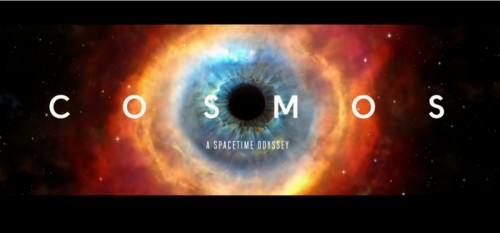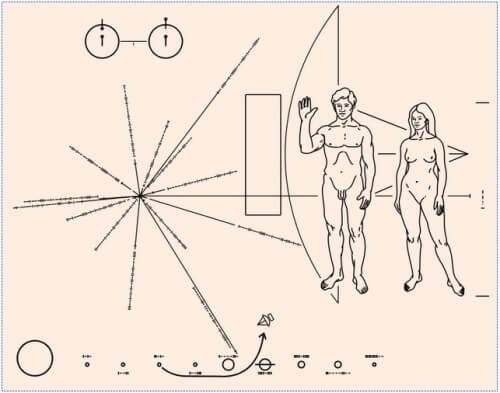"Cosmos": scientific series or atheist propaganda? The scientists praise, the conservatives grumble

In the XNUMXs, the series "Cosmos: A Personal Voyage" was broadcast in the United States, hosted by astronomer Carl Sagan. This series, which dealt with the history of space exploration, was the best science series created in the United States up to that time. For the first time, scientists talked about science in a language understandable to everyone, not only for avid science enthusiasts but also for the general public. They aroused among their viewers the passion for scientific discoveries and the joy of learning. The ratings the series received - in the United States and outside of it - were unusual for a scientific series. Half a billion viewers, in which tens of millions of Americans acquired through it up-to-date knowledge about science in general and the universe and space in particular.
Sagan's publication as a popular science writer and one of the supporters (albeit with reservations) of the ST program (Search for extraterrestrial intelligence) contributed to the popularity of the series - the program for finding intelligence in space. This program existed for ten years before the creation of "Cosmos". Sagan's wife at the time, Linda Salzman Sagan, designed the Pioneer plaque, a plaque that was a sort of message of peace and intelligence to any extraterrestrial intelligent being. The plate showed universal mathematical and chemical symbols, and next to them two naked Homo sapiens, a male and a female, with the male raising his hand in a gesture of peace.

:
In the XNUMXs, replicas of the plate were launched on the "Pioneer" series of spacecraft, with the belief that it is impossible to dismiss the assumption that there is intelligent life outside the earth, and therefore every effort should be made to contact them, or at least inform them about the existence of (more or less) intelligent life. on earth.
Since then dozens of series and programs have tried to imitate the success of "Cosmos", to one degree or another of success. Now the astrophysicist Neil deGrasse Tyson, a colorful and sharp-tongued television personality and the director of the planetarium at the American Museum of Natural History, has created a new version of the old "Cosmos": "Cosmos: A Spacetime Odyssey" ).
The series was produced by Seth MacFarlane, the creator of the comedy series "Family Guy", and Van Druyen, Carl Sagan's widow. McFarlane explained his initiative by saying that after his commercial success he wanted to create something meaningful, and now he could afford it financially. He and Tyson expressed their hope that the series would awaken people from their indifference and direct them to enthusiasm for scientific research. Tyson said that since the popularity of a series in which science is a central element - the crime series CSI - science has become mainstream, and the creators of "Cosmos" in the 2014 version hope that the series will land on fertile ground in terms of public opinion. The series "Cosmos: An Odyssey in Space and Time" is broadcast in twenty-five countries outside the United States (including, by the way, Ukraine, whose inhabitants at this time might be better off escaping to space for a bit).
https://www.youtube.com/watch?v=kBTd9–9VMI
A trailer for the series
Although the series is broadcast, among other things, on the "Fox" channel, which is associated with the conservative, religious and Republican right in the United States, Republican critics searched for a claim that could be attacked - and found it in one sentence of Sagan's in his book "Cosmos", the book that accompanied the original series: "The universe is Everything that is, everything that was and everything that will always be." (The Cosmos is all that is or ever was or ever will be).
Is this the focus of the series? No, but the creationist organizations and websites "Discovery" and "Evolution News", which are financed by conservative Christian billionaires, were seen as snakebites for one possible interpretation of this one sentence - the atheistic interpretation - and rushed to attack the series as an attack on the values of Christianity, atheistic propaganda funded by public funds (the The series was produced by the public educational network PBS). They claimed that the series is not science but a way for infidels, materialists and atheists to damage the religious beliefs of many students - this while science itself is protected against the introduction of content by religious sects into scientific education, by the separation between religion and state enshrined in the First Amendment to the Constitution (a claim that is not true: the science Science education in general and science education in particular are currently under attack all over the United States. Especially in the southern states, such as Texas, Louisiana, Kentucky and Tennessee, a wave of legislation is passing which aims to allow the introduction of creationist textbooks into science classes.
In the first episode of the series, Giordano Bruno is mentioned, the priest who renounced the religious convention that the earth is the center of creation, and was put on the stake in 1600 (although not because of his cosmological positions but mainly because of the church's claims of religious heresy). In one of the interviews to promote the series, Tyson was asked: "Do you compare the state of science in the United States today to the state of Giordano Bruno, who was persecuted and executed?"
The question amused Tyson, who replied: First of all, he didn't write that part of the script; Secondly, it seems that Bruno, a scientist and a priest, perceived God to be much more powerful and comprehensive than those contemporary Christians who apparently believe that God is so weak that he needs their protection against science; And thirdly, the series is absolutely not about religion, but about free thinking in the face of fixed belief - any belief, be it religious, political or social belief.
Tyson ended the first episode of the series by describing his meeting with Sagan, who was a role model and a source of inspiration for him, during his academic studies. Late Night host Stephen Colbert asked Tyson: "If Sagan were alive today, what do you think would surprise him the most, in terms of the change in our knowledge of the world, since his death in 1996?" Tyson replied: "I think he was most surprised by the fact that we still have to argue that science matters to society."
Tyson's series opens with the same line that opened Sagan's "Cosmos", the line that incited the conservative right in the 1925s: "The universe is all there is, all that was and all that will always be." Among other things, Tyson will present in the series the multitude of new evidence from the last thirty years for the theories of the "big bang" and the expansion of the universe. In front of him will stand creationist organizations that since the Scopes trial, the "monkey trial" of XNUMX, almost nothing has changed in their arguments.
Sagan was agnostic. The discussion of the question of God's existence was for him secondary to the necessity of exhausting the capacities of human research. He did not intend to discuss questions related to religion, but to science. For this he created "Cosmos". In 1995, a year before his death, his last book, The Demon-Haunted World, was published. In this book Sagan wrote a lot - not only about the nature of science but also about the nature of those who pursue it. It seems that in this respect not much has changed since Sagan's "Cosmos" to Tyson's "Cosmos", thirty-four years later.
Additional sources:
Steven Newton, Cosmos & the Creationists: Why Some People Hate Science on Television, in NCSE,
ANDREW LEONARD, Watch out, "Cosmos"! The Holy Inquisition is not happy with you: The religious right attacks Neil deGrasse Tyson's "agitprop for scientific materialism"

8 תגובות
take the people out of their indifference? We all live in a huge debt, how does anyone expect us to have the opportunity to learn about the most important thing, our environment...
Neil Tyson, host of the series "Cosmos", which has 180 million viewers in 45 countries, says in an interview before the broadcast of the second episode: "There is nothing to argue with science deniers because it will give the appearance of credibility to their claims."
http://www.motherjones.com/environment/2014/03/neil-degrasse-tyson-inquiring-minds-cosmos
The argument also works in the opposite direction - the world of science is also influenced by culture and society and not only influences it...
There is the original series on YouTube with Hebrew subtitles
http://www.youtube.com/watch?v=ClPShKs9Kr0&list=PLETN_8O97TN89hClRq81qek1sm97IR5uj